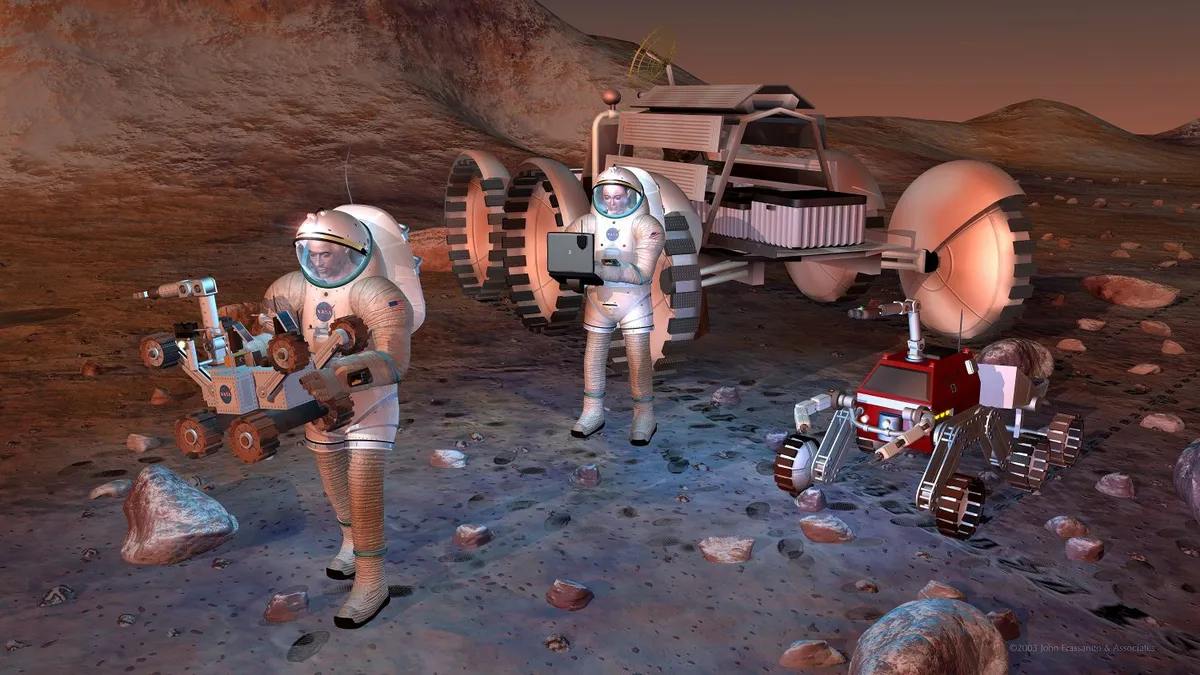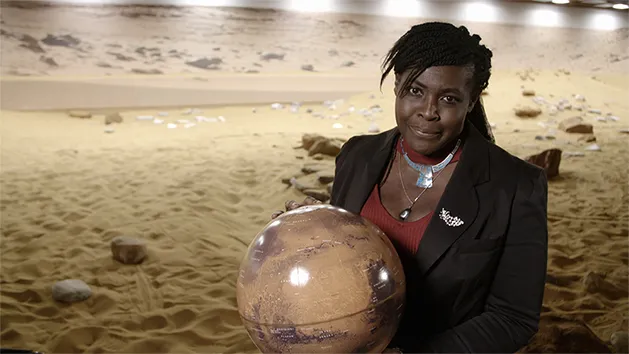Humans have an innate desire and ability to conquer the boundaries put in our way by nature, but why would anyone want to go to Mars?
Speaking personally, the reason why I would want to go to Mars is because it would be the journey of a lifetime.
Mars has always been my favourite planet, and would certainly be my destination of choice were I to travel to another planet in the Solar System.
But it’s logical why humans would want to go to Mars, when you look at the alternatives offered up by our Solar System.

The gas giants are out in terms of human habitation.
Turning then to the inner Solar System, Mercury is just a lump of rock with little atmosphere, too close to the Sun to be habitable.
Venus looks beautiful from afar, but Venus's atmosphere is anything but.
The planet has a surface temperature of around 420ºC, hot enough to cause serious problems for the first probes that landed on its surface and the spacecraft that have undertaken the search for life on Venus.

That brings us to Mars. It’s not quite positioned in the Sun’s habitable zone, the region where liquid water could flow over its surface, but we have found water in other forms there – so survival could be possible, if humans could survive the journey to Mars.
Having such a far-flung plan may seem like a pipe dream, but a few years ago I came up with the ideal strategy to make my dreams a reality.
The logistics of travelling to Mars

There are a number of challenges to overcome in developing a viable plan for a trip to Mars, perhaps the most limiting being cost.
A round trip for a few people is likely to run into the hundreds of billions, but what if it was a one-way trip?
The costs are likely to be more than halved, and if one could sell the television rights a sizeable sum could be raised.
The next step is to make it mainstream. What if it was a Big Brother spaceship going to Mars?
On the journey would be 10 people selected from around the world, generating global interest from the public and TV companies.

Just like the Earthbound version of the programme, there would be real-time coverage stimulating a continued interest in the characters on board.
As well as the cost, one of the bigger challenges would be eviction – ejecting failing contestants out into space halfway to Mars would be frowned on.
But a solution to this lies in the cost-saving measure I mentioned previously: the two winners of the competition would return to Earth, while the others would live out the rest of their days on the Martian surface, becoming the first colony on Mars.
My plan would be to lose the competition and spend the rest of my days – which could be numerous with suitable power generation and basic infrastructure – pottering over the surface in an effort to understand the geology, weather and climate of a whole new planet.

Having developed this strategy, I used it in a number of talks and a film that I made to celebrate 50 years of the space era.
But since then it has lain fallow, until a few years ago when I met Bas Lansdorp, a Dutch entrepreneur who had similar ideas and created a company called Mars One, with the aim to get people onto the surface of the Red Planet.
Did I apply? Well, unlike nearly 3,000 applicants from across the world I did not, as my circumstances have changed and I have a family to look after.
But who knows, in the future when they are grown up, my wanderlust may just tempt me to try to get out there again.
This article originally appeared in the March 2014 issue of BBC Sky at Night Magazine.
